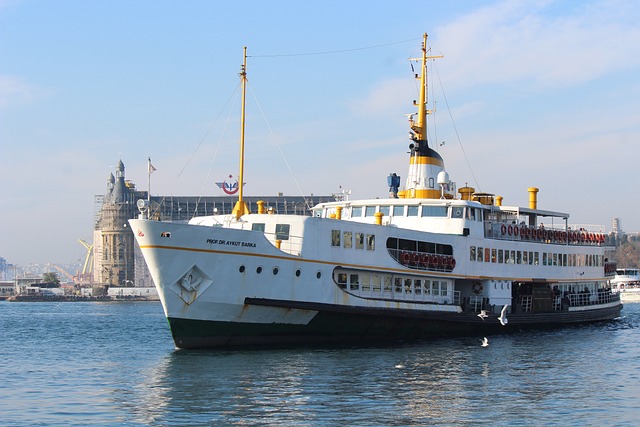How the Maldives’ Political Parties are Changing the Country’s Future
The Maldives is a nation that has seen many changes in recent years, and its political landscape is no exception. In this blog post, we will take a closer look at the different political parties in the Maldives and how they are impacting the country’s future. We will explore the ideologies of each party, their roles in government, and the potential impacts that their actions could have on the Maldivian people. Finally, we will discuss the key challenges that the political parties face in bringing about positive change in the Maldives.
The Maldives has a two-party system
The Progressive Party of Maldives (PPM) and the Maldivian Democratic Party (MDP). The PPM is the ruling party, led by President Abdulla Yameen. It is considered to be a center-right party, with a focus on maintaining religious and traditional values. The MDP is the main opposition party, led by former president Mohamed Nasheed. It is considered to be more of a liberal party, focused on promoting democracy and human rights. Both parties have had a significant influence in shaping the political landscape of the country. For example, under the rule of PPM, Islamic law was introduced as part of the country’s legal system while the MDP has pushed for greater freedom of speech and press freedom.
The Progressive Party of Maldives is the ruling party
The Progressive Party of Maldives (PPM) is the ruling political party in the Maldives. The party was founded in 2011, and it has held majority power since then. It is led by President Abdulla Yameen Abdul Gayoom and works to promote economic growth, national security, and a pro-Maldivian policy agenda. The PPM has implemented several reforms, including initiatives to promote the development of the country’s infrastructure, improve health care and education systems, and make the Maldives a leader in renewable energy. In addition, it has taken steps to strengthen the nation’s democracy by ensuring freedom of speech and empowering citizens through access to justice. Furthermore, it is actively involved in diplomatic activities, as seen by its active membership in various international organizations such as SAARC and the United Nations.
The opposition party, Maldivian Democratic Party (MDP), offers a different perspective on how to lead the nation. Led by former president Mohamed Nasheed, MDP emphasizes equal rights for all people and social progress. The MDP seeks to implement new policies that can increase educational opportunities for citizens, promote renewable energy sources, protect human rights, fight corruption and ensure greater accountability from public officials.
To ensure that both parties can contribute positively to the future of the Maldives, regular meetings between both sides are essential for dialogue and compromise. However, with tensions between the two sides often running high, talks must be carefully monitored for progress. Fortunately, progress seems to be underway as members from both parties have recently met with each other to discuss possible solutions for some of the more contentious issues facing the nation.
The Maldivian Democratic Party is the main opposition party
The Maldivian Democratic Party (MDP) is the main opposition party in the Maldives, founded in 2003. It has strong grassroots support and has been a key player in bringing about political change in the country. The MDP has been a vocal advocate of democracy, human rights, and good governance, and has been a major force in pushing for reforms and accountability within the government. It has also been instrumental in pushing for a free and fair election process. The MDP has made it clear that it is focused on tackling corruption, inequality, and other issues that affect the everyday lives of Maldivians. To this end, they have campaigned on issues such as increasing access to education and health care, improving women’s rights, and creating better economic opportunities. They have also supported LGBT rights, which is an important topic of discussion in the region.
There are also several other political parties in the Maldives
The Maldivian Development Alliance (MDA), The People’s National Congress (PNC), The Adhaalath Party, The Dhivehi Rayyithunge Party (DRP), The Jumhoori Party (JP), and The Maldives Reform Movement (MRM). Each of these parties has its unique platform and vision for the future of the country. While some of them support the status quo, others are advocating for radical changes in the political landscape. For example, the MDA is looking to establish a multi-party system to strengthen democracy and promote good governance within the government. They also plan to develop economic policies that will help alleviate poverty and provide job opportunities for citizens. Similarly, the PNC is looking to create an environment where people can freely express their opinions without fear of retribution.
The political landscape is changing rapidly in the Maldives
The two-party system has been dominant in the Maldives for many years, but recently, several other parties have been formed to challenge the status quo. These new political parties, including the Jumhooree Party, the Adhaalath Party, and the Dhivehi Rayyithunge Party, are pushing for more progressive policies and greater public participation in politics. The Maldivian Democratic Party (MDP), which is the main opposition party to the ruling Progressive Party of Maldives, is also making strides toward increasing its presence in the country’s political arena. The combination of these forces is creating a diverse and vibrant political landscape in the Maldives that is sure to shape the future of the country. This newfound diversity presents both an opportunity and a challenge for the Maldivian government. On one hand, there is an increase in competition between the different parties, with each trying to outdo the others in terms of policy development and implementation. On the other hand, this creates an environment where different perspectives can be shared and debated in order to create stronger solutions.


